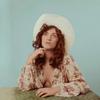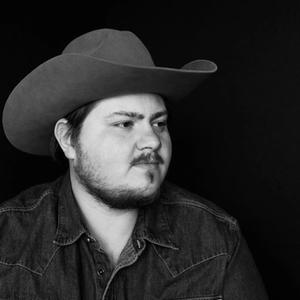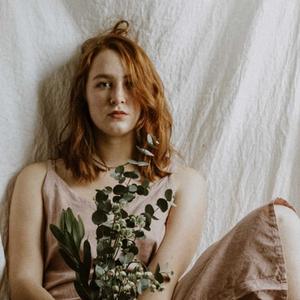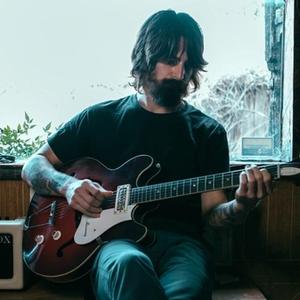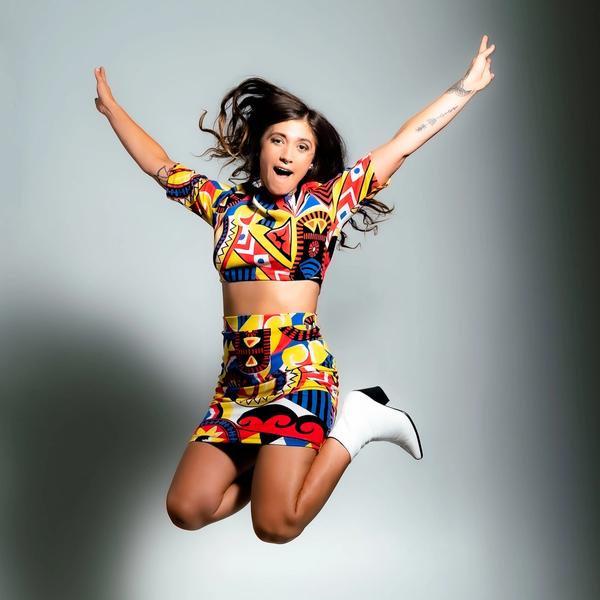




Link copied

Despite only just turning 33, Sierra Ferrell has already lived in more places than most people do in a lifetime. Born in Charleston, West Virginia, Ferrell moved around her home state during her childhood and adolescence, before leaving completely in her early twenties to travel and pursue a career in music.
Since heading out on her own, Ferrell has spent time all across the country; from New Orleans, Seattle, Yellowstone National Park and everywhere in between. Each place has left its imprint, helping to shape the woman and artist she is today.
Concocting a spellbinding mix of bluegrass, folk, old-time soul and gypsy jazz, Ferrell’s debut album, Long Time Coming, documents these places and the memories they hold – crafting a captivating compilation that covers life on her own and the self-discovery that has come in tow.
While prepping for a run of west coast shows, Ferrell caught up to discuss all things Long Time Coming, busking, Billy Strings, overcoming her anxieties and more. But before all of that, we started with food – a certain West Virginia institution in particular.

With you calling Charleston, WV home, I have to ask: what’s your favorite order from [Charleston-based restaurant chain] Tudor’s Biscuit World?
I always get the ‘Golden Eagle.’ It’s a biscuit topped with a hash brown, Canadian bacon, an egg and cheese. The ‘Peppi’ is really good too. It’s got pepperoni and melted cheese on it, kind of like a pizza biscuit. I wish we had a Tudor’s in Nashville. I always have to make a stop there when I go back home.
There’s also a place called Gino’s [Italian] that shares a lot of buildings around the state with Tudor’s. Their pasta and baked spaghetti is off the charts. They also make these things called ‘Pubwiches’ - they're basically these fold-over sandwiches made from their pizza dough and stuffed with ham, chicken, steak and so much more.
That sounds really messy, but incredibly delicious. You’ve got to love the culinary delicacies of West Virginia. In terms of your upbringing, when did music begin to take a hold of you?
I grew up poor - so I found myself playing outside a lot. We had one TV with bunny ears and aluminium foil, it was sat on the ground and was only operational by turning a knob on its side. I spent most of my time outside, using my imagination, exploring and playing games.
We didn’t travel a lot because my mother was a single mom raising three kids, two of whom lived with her. However, I’m really glad that I had the chance to grow up outside and experience more than living in a high-tech world – it really changes people a lot.
“I’m really glad that I had the chance to grow up outside and experience more than living in a high-tech world – it really changes people a lot”
You’ve been flexing your imaginative muscles for a while, in that case. I imagine that the practice lends itself well to your musical pursuits too?
Absolutely. I’ve always loved singing. I remember making up songs all the time, even way back then. It probably annoyed some people, but I loved it. I remember being young, trying to write and thinking how stupid what I’d put down was – I thought I shouldn’t have it in a song.
For a long time, I didn’t take it very seriously. I’d never had a creative outlet for music, other than what I was exposed to on our little TV. But, as I got older, I got involved with the school choir and stayed from elementary and middle school, all through high school.
Did your involvement in the choir inspire you to start approaching music more seriously, or did that come later?
I really didn’t start thinking about that until my early twenties, because I never realized how big of a world it is out there. Music has always been a passion of mine but was never something I thought I could make a career of until I got into playing bars. The pay wasn’t much, but it took me to new places and in front of new people. Even then, I was still unsure if it was for me.
Then, I started traveling around America a bit from the trunk of a van. I started busking a lot and was making way more money doing it than I ever did in the bars. It allowed me to do more of what I wanted to do, which was very liberating and a gateway of sorts for me.
I started visiting Nashville around that time as well and making connections with people there. It’s helped me a lot with getting my name out further and has presented me with a world of opportunities.
“Music is like another language to me and something that I love dearly”
What tools of the trade did you learn from busking that you still carry into your performances today?
It helps me with overcoming my anxiety. I was my mom’s only daughter, so I was like her little princess. I was a bit sheltered and over-protected. So, when I started branching out and traveling it was difficult for her, but it helped me a lot with building my own character and overcoming my anxieties and fears.
Honestly, busking for me was a lot easier than playing on stage because on a stage everyone is looking at you and expecting something. Music is like another language to me and something that I love dearly. It’s fun, but when people have certain expectations of you, things can be different. Busking helped me to get to a point where performing on stage was a lot easier.
When you’re busking, people don’t expect to see you, it’s just something they stumble upon on the street. People can come or go as they please, but when you have a captive audience and a couple hours to fill there’s a lot more pressure to perform at a high level, so you have to learn to bring it.
Given your rural upbringing, did you feel a culture shock being you were traveling around and busking in Seattle, New Orleans and other big cities?
There was definitely a culture shock, but a lot of cool moments too. I really enjoy the old architecture and walking through city streets to admire the amazing craftsmanship. It’s crazy to think about how things were built in the past versus now. It blows my mind.
What was your favorite city to busk in?
I love New Orleans. It can be a slippery slope there though. I can only be there for a few days at a time - I couldn’t imagine living there. There’s so much temptation, noise and craziness going on. It’s easy to get spread thin there.
“I love New Orleans, it can be a slippery slope there though - there’s so much temptation, noise and craziness going on”
How long have you been settled down in Nashville?
It’s been about four years now. I never thought that I’d actually be living here. In the city, you need to have your people and I couldn’t find mine for a long time. I’m slowly learning and becoming more aware of who to surround myself with, because you’re only as good as the friends you keep. You need to be around people who are going to make you put your best foot forward, which isn’t always easy.
Speaking of friends, how’d you first meet Audrey MacAlpine and Nate Leath? I was blown away by the chemistry you three share on stage in the few times I’ve seen you play together.
I first ran into Nate at a Honky Tonk Tuesday. At the time, I was fronting a band called the Cowpokes at the American Legion in Nashville. He came in one night - shortly after moving to town - looking for a new start. We were both starting out and trying to get out on the road more.
For almost a year, I waited to ask him to be my fiddle player because of all the other projects he was busy with. Once we linked up, there was an immediate connection. Soon after Audrey came along, also bumping into us at the American Legion. She and Nate hit it off right away. They’re dating and have been inseparable ever since.
“I’m a very hands-on person. I need people in front of me doing something to keep my attention and mind focused”
The different connections y’all have to the American Legion is so cool. Going off that, can you tell me about your influences – it certainly includes the honky-tonk, but gypsy jazz and other elements too?
We pretty much are our surroundings. Whatever clicks with me and makes my frequencies happy helps to inspire the music I make. I also feel like I’ve met a lot of artists who’ve given me a little piece of themselves that I then incorporate into my music.
A life changing moment for me was when I traveled to Seattle the first time. I was there for the Northwest Folklife Festival. It was plum full of different types of music on stages and from busking. Everything inspired and hit me in different ways.
When it comes to the different artists I listen to, a lot of the time it comes from a live setting like that. Most of the time, I don’t even know who’s playing off the bat, I just like the sound of the music. Not to say that albums don’t play their parts too.
I think it has to do with the way that I’m wired. I’m a very hands-on person. I need people in front of me doing something to keep my attention and mind focused.
In terms of your own music, your debut record has quite literally been a long time coming. I know it’s been in the works since you signed with Rounder Records in 2019.
It’s been a really wild ride. Last year threw a wrench in the tire for sure, and honestly for a while my mental health was struggling through it all. Even though the break was unexpected, it was needed in many ways. Prior to it, I had been considering a couple other names for the album, but with everything that went down, Long Time Coming seemed like a good fit.
What were some of the other working titles?
Figuring It Out was one I thought was a good fit, since my music is all over the place. Another was Break In The Clouds.
Both are good names, but I like the ambiguity of Long Time Coming. One of my favorite songs on the record is ‘Bells Of Every Chapel’, which features Billy Strings. How was it that you two connected?
It’s actually a really funny story. I was in Seattle and getting ready to move to Nashville. I saw he was playing in town, so some friends and I made plans to go to the show. It was at a place called the Tractor Tavern. I was instantly amazed by his music.
I remember going up to him after the show. I told him how much I enjoyed everything and that I was moving to Nashville and hoped to see him around. Now, a handful of years later, we’re both on Rounder Records together and he’s playing on my record. It’s one of those serendipitous occurrences that you can’t help but smile about.
~~
Sierra Ferrell’s debut album Long Time Coming is out Aug. 20 via Rounder Records. Watch the new video for Ferrrell's single 'Bells of Every Chapel' below.
Photography by Keni Omdahl and Rafael Barker.
For more on Sierra Ferrell, see below:

